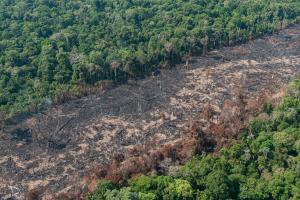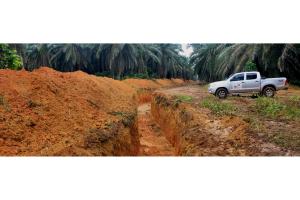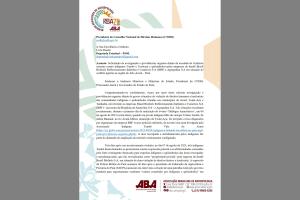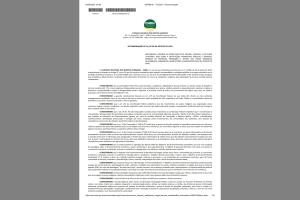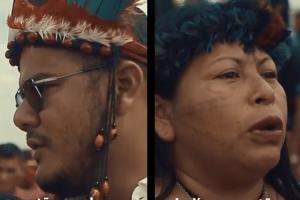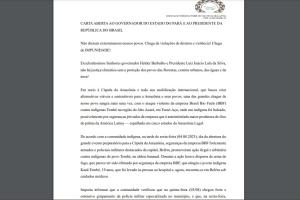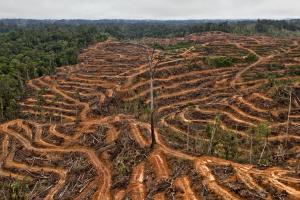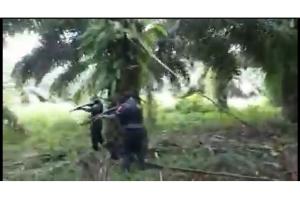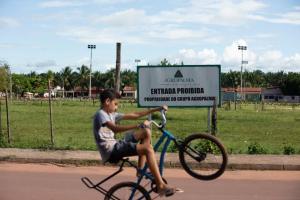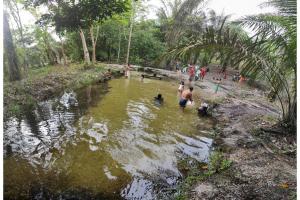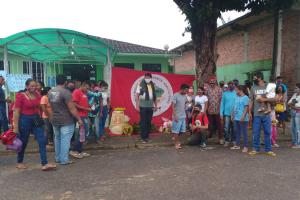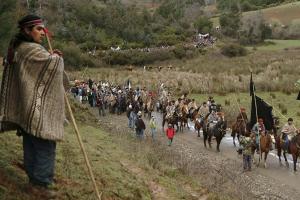Palm Oil
The oil palm tree is native to West Africa. It is an important tree for forest-dependent communities, their cultures and their economies. However, large-scale oil palm monocultures for industrial production (oil and agrofuels) have been driving deforestation and land grabbing in Southeast Asia. More recently, oil palm monocultures are also driving destruction in Africa and Latin America.
Bulletin articles
27 February 2024
The Amazon region is one of the final frontiers of resistance to capital expansion. This is epitomized by the struggles of social activists such as Chico Mendes, as well as by the presence of most of the earth’s remaining indigenous peoples in voluntary isolation. However, different forms of ‘green’ extractivism are currently and increasingly advancing on this territory.
Bulletin articles
26 February 2024
In the Acará Valley, Pará state, the Tembé and Turiwara indigenous peoples, and quilombola and peasant communities are fighting to take back part of the living spaces they traditionally occupied. It is not just a struggle for territory, but one to reverse a history of oppression and injustice. Today, they are denouncing structural violence and state omission.
Articles
24 February 2024
Between August 4 and 7, 2023, there were violent attacks on the lives of four indigenous Tembé people as a consequence of the struggle to take back territories from the hands of the company Brasil BioFuels (BBF). In the face of this, the Brazilian Anthropological Association (ABA) sent a formal letter to the authorities requesting the immediate regularization of indigenous and quilombola territories, as well as an investigation into the mechanisms of criminalization of their leaders and the suspension of all incentives to companies involved in the violence.
Articles
24 February 2024
On August 8, 2023, the National Human Rights Council (CNDH) sent a recommendation to federal and state authorities regarding measures to protect, promote and defend indigenous peoples and quilombola, riverine, peasant and agro-extractivist populations in Pará state.
Multimedia
11 August 2023
Tembé indigenous leaders shot by private security forces (only available in Portuguese).
Articles
11 August 2023
Your Excellencies Governor Helder Barbalho and President Luiz Inácio Lula da Silva, there is no climate justice without the protection of two forests, urban centers, water and land! (Only available in Portuguese).
Bulletin articles
22 July 2023
This article tells the story of a women group in Kalimantan called “Hurung Hapakat”, which means “Working Together”. Collectively, and against serious repression, they have reclaimed some land from oil palm plantations in order to also reclaim their food sovereignty, dignity and wisdom. And they are not alone.
Action alerts
28 April 2023
Other information
16 January 2023
The news portal Metrópoles travelled 5,700 km to denounce how the palm oil production chain affects quilombola communities and Indigenous Peoples in the state of Pará, Brazil—namely through expropriation of traditional communities, environmental impacts, and a labor history analogous to slavery.
Bulletin articles
12 September 2022
There is no other crop that has grown faster globally in the last decade than palm oil. This almost uncontrollable expansion leaves a deep trail of destruction and conflicts around its giant areas of plantations from Southeast Asia to West and Central Africa. As companies take over more community land, they also grab the water sources from them.
Bulletin articles
16 June 2022
In Brazil, oil palm plantations are expanding rapidly, mainly in the Amazonian state of Pará. BBF (Brasil BioFuels), the largest oil palm company in Brazil, stands accused of environmental crimes and violence against indigenous, quilombola and peasant communities such as Virgílio Serrão Sacramento, a community linked to the Small Farmers’ Movement (MPA).
Bulletin articles
23 March 2022
What a certain historiography terms civilizational expansion or capital’s expansion has in fact been the invasion and de-territorialization of peoples and communities using much epistemic and territorial violence. Concessions have been granted in areas that are not demographic voids, a colonial concept that ignores the fact that they have been populated for millennia.
